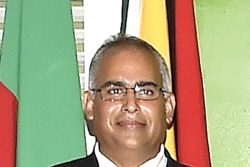(Reuters) – The United States has struck a deal with Peru that will help the Latin American country restore and protect some of its parts of the Amazon rainforest in return for a $20 million cut in its debt.
The debt-for-nature swap, as these kinds of agreements are known will put money towards conserving protected areas of the Amazon, improving natural resource management, and supporting sustainable livelihoods for communities that rely on the rainforest, the U.S. Treasury said in a statement.
It is made possible through contributions of $15 million by the U.S. government under the Tropical Forest and Coral Reef Conservation Act (TFCCA) and a combined donation of $3 million from four international non-governmental organizations — Conservation International, The Nature Conservancy, Wildlife Conservation Society, and the World Wildlife Fund (WWF).
This is the third debt-for-nature swap between the United States and Peru and took around two years to finalize. According to the Treasury, the first two swaps occurred in 2002 and 2008 and together generated about $36 million, for the restoration, conservation, management, and sustainable use of tropical forests.
“We’re presenting a complaint in our party with total conviction that what I’m saying is true,” Ebrard told reporters during a brief press conference.
“What course of action we take will depend on the response from MORENA,” he added. “If (things) stay as they are, I would no longer have any interest in being in MORENA.”
Ebrard, a longtime ally of President Andres Manuel Lopez Obrador, said he would organize a “national political movement” starting Sept. 18, without going into details.
Lopez Obrador has publicly backed Sheinbaum as the winner of the MORENA contest and said Ebrard is free to do what he likes.
Ebrard has left open the possibility of joining forces with the center-left Citizens’ Movement, the only significant party yet to select a presidential candidate for 2024.
Ebrard is widely viewed as an economic moderate who would encourage more investment to the country, enabling it to benefit from so-called nearshoring as companies shift their exposure away from Asia to be closer to the United States.






